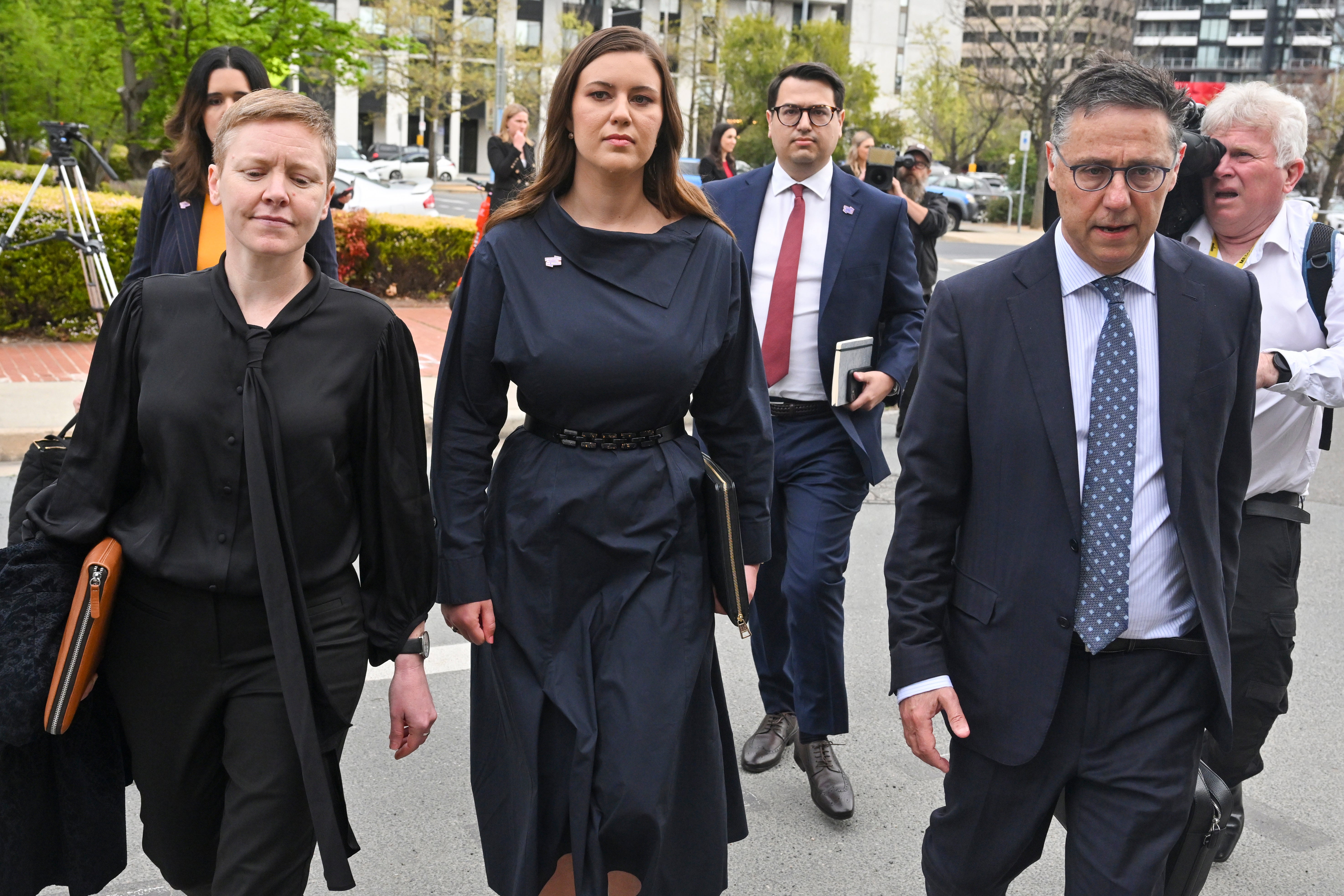Trial begins of man accused of raping government worker in Australia’s parliament
Brittany Higgins says she was ‘as drunk as she’d ever been in her life’, something her lawyer says is proof she couldn’t consent
Your support helps us to tell the story
From reproductive rights to climate change to Big Tech, The Independent is on the ground when the story is developing. Whether it's investigating the financials of Elon Musk's pro-Trump PAC or producing our latest documentary, 'The A Word', which shines a light on the American women fighting for reproductive rights, we know how important it is to parse out the facts from the messaging.
At such a critical moment in US history, we need reporters on the ground. Your donation allows us to keep sending journalists to speak to both sides of the story.
The Independent is trusted by Americans across the entire political spectrum. And unlike many other quality news outlets, we choose not to lock Americans out of our reporting and analysis with paywalls. We believe quality journalism should be available to everyone, paid for by those who can afford it.
Your support makes all the difference.The trial of an Australian government employee accused of raping his colleague inside the country’s Parliament House in Canberra has begun.
Brittany Higgins, 27, has alleged that she was raped by Bruce Lehrmann, who is the same age, in parliament on 23 March 2019 after a night out drinking with co-workers.
The case sparked outrage in the country with Ms Higgins calling out former prime minister Scott Morrison for “victim blaming” and alleging Mr Morrison’s government had carried out unofficial briefings against her and her loved ones.
The former prime minister had also apologised and said the incident “should not have happened”.
Prosecutor Shane Drumgold on Tuesday told the jury that Ms Higgins described herself as being “as drunk as she’d ever been in her life” on the night she was allegedly raped inside the federal building.
Ms Higgins’s intoxication was significant to the case as it concerned her ability to consent to have sex, the prosecutor told the jury in his opening address.
Mr Lehrmann has been accused of abusing her after she passed out in an inebriated condition. Ms Higgins said she woke up to the man sexually assaulting her.

The 27-year-old accused has pleaded not guilty to the charge of sexual intercourse without consent. He faces a likely maximum sentence of 12 years in prison if convicted.
Mr Drumgold told the court that the two had been out drinking with their co-workers at a bar in Canberra on 22 March 2019, after which they went to a nightclub and then left in a taxi together in the early hours.
Ms Higgins has maintained that she thought she was on her way home, but her colleague said he needed to stop at the parliament building to collect work, the prosecutor told the court.
The accused told the guards via intercom at the building entrance that he worked for defence industry minister Linda Reynolds and he was picking up documents with Ms Higgins.
According to the guards who saw the pair entering the building, the two were observed to be affected by alcohol, Mr Drumgold said.
Ms Higgins has alleged she fell asleep on a couch after the two entered Ms Reynolds’s office and woke up to the accused sexually assaulting her.
She also said “no” half a dozen times, following which Mr Lehrmann left the building in an Uber and fell asleep, the prosecutor said.
Ms Higgins said she woke up alone in the office later that morning after a guard checked on her.
In text messages after the alleged rape, Mr Drumgold said Ms Higgins told a friend she had been “barely lucid” at the time.
“If he [Lehrmann] thought it was OK why would he have just left me there?” Ms Higgins asked in the message.
The trial began in the Australian Capital Territory Supreme Court on Tuesday and is being overseen by chief justice Lucy McCallum.
According to defence lawyer Steven Whybrow, there are “massive holes” in the version Ms Higgins has shared with police.
He said the government worker’s story was not true, even though violence against women was an “underreported and under-prosecuted scourge on our society”.
“This verdict in no way affects the conversations and the focus that is being turned to these issues. We have all known for some time these things are real,” Mr Whybrow said.
The prosecution’s version of events is being heard this week. The trial is expected to run up to six weeks and the jury will hear testimony from three former ministers as well.
A panel of 16 jurors, comprising 10 men and six women, has been selected for the trial. Four of them are reserves.
